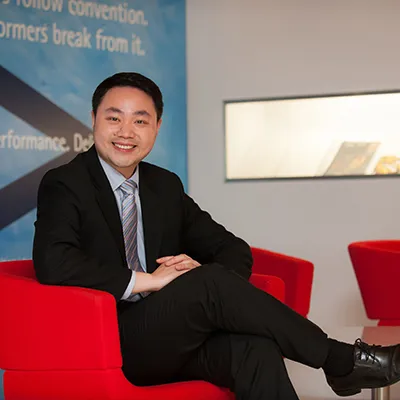SINGAPORE Telecommunications (Singtel) has deployed Singapore's first 5G standalone trial network at its testing facility. The network offers enterprises early access to 5G to develop and trial 5G solutions.
It uses 3.5 gigahertz spectrum and Ericsson's advanced Massive MIMO (multiple-input multiple-output) technology to deliver ultra-fast speeds and low latency or response times.
Bill Chang, chief executive officer (CEO) of group enterprise at Singtel, said: "With 5G's low latency and scalability, enterprises can not only drive efficiencies and make better and more cost-effective decisions, but also deliver richer customer experiences."
Enterprises can sign up on Singtel's website to test-bed 5G applications and technologies at its 5G Garage testing facility at no charge.
Cloud-gaming provider Ubitus has used the network for a 5G cloud-gaming trial, which consistently delivered an 85 per cent lower latency of between eight and 11 milliseconds compared to cloud gaming on 4G.
The Ubitus trial was conducted on Singtel's multi-access edge computing (MEC) platform, which integrates 5G's ultra-low latency and high bandwidth capabilities with power cloud computing performance. This allows rich graphics to be processed on dedicated servers and transferred directly to devices - significantly cutting lag times.
Ubitus CEO Wesley Kuo noted that the trials will inform the company's designs for games that will test gamers' reflexes and instincts.
5G and MEC can be integrated with technologies such as Internet of Things, analytics, robotics and artificial intelligence as well as augmented, virtual or mixed reality.
This enables enterprises to leverage the low latency in applications, requiring little or no lag time. Examples include remote surgery, smart manufacturing, autonomous driving, remote robotic repair and maintenance, and virtual reality-enabled concerts.
MEC removes the need for data to be sent to public clouds to be processed and sent back.
In September, Singtel unveiled its first 5G use case with its round-the-clock unmanned pop-up retail store. Its standalone trial network also follows the recent launch of the telco's 5G non-standalone network, which rides on existing 4G infrastructure.
Singtel last month said it is pacing its investment for 5G deployment, and will roll out its 5G network coverage to half the island in two years' time and nationwide by 2025.
M1 and StarHub will jointly deploy a standalone 5G network next year.
StarHub was the first in Singapore to offer early 5G services in August, when it launched its non-standalone network to cater to businesses and consumers on its Mobile+ and Biz+ mobile plans.
Before that, it had also partnered Nanyang Polytechnic and National University of Singapore to establish 5G testbeds for enterprises, faculty and students to co-develop 5G solutions for Singapore.
Charlie Chan, chief of enterprise business group at StarHub, said on Thursday: "We're now facilitating the development of 5G use cases with enterprise partners covering areas such as healthcare, retail, urban solutions and advanced manufacturing."
Enterprises keen to explore 5G's potential with StarHub can register on the telco's website.
Singtel shares ended flat at S$2.15 on Thursday, while StarHub gained S$0.01 or 0.8 per cent to S$1.23.
© 2020 Singapore Press Holdings
This article was written by Fiona Lam from The Singapore Business Times and was legally licensed through the Industry Dive publisher network. Please direct all licensing questions to legal@industrydive.com.







